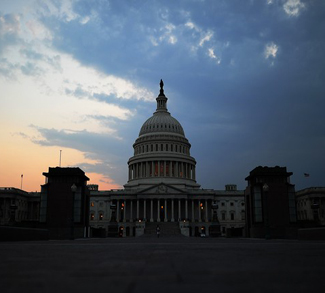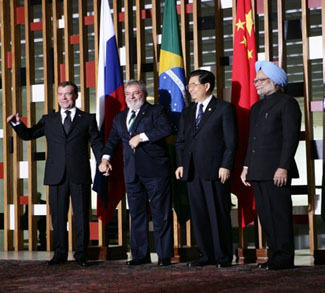Though Republicans and Democrats have managed to piece together a last-minute bill to stave off a potentially ruinous default, the rancorous process and tepid end result both point to a new kind of politics in Washington; one where political orthodoxy trumps practical policy.
Without getting too bogged down in the details, it’s safe to say that there was a way in which the debt ceiling should have been raised, and the way that it was actually raised.
It should have been a routine process for one, as it has been in the 74 times that the debt ceiling has been raised since 1962. The reason why it has been a smooth process in the past, and one that hasn’t come down to the eleventh hour, is fairly simple: neither political party has wanted to dabble in the economic brinkmanship inherent to needlessly bringing the American government to the edge of default. Apparently things have changed.
The GOP has seized on the opportunity of this particular debt ceiling bill to ram a special agenda through into law. Fair enough- after all, they are the ones who control the House of Representatives. Oddly enough given what was at stake though, the agenda that was rammed through wasn’t even the one that the GOP’s constituency wanted, as only one third of Republican supporters believe that the government budget should be balanced without any new tax increases.
That the policy doesn’t enjoy majority support within the GOP constituency could be forgiven if it wasn’t so potentially ruinous for the economy. Everyone from Nobel-prize winning economist Paul Krugman to former Bush administration alumni David Frum has been decrying the irresponsibility of cutting back on government spending while the American economy is still stained red from 2008. There are still fourteen million Americans who are out of work, a third of whom have been jobless for over a year. Inflation, a tepid real estate market, and persistently high oil prices are also alarming indications that the American economic recovery is very delicate, if one can even be claimed at all.
All this points to it being the wrong time to pull back on government spending, especially in a way that doesn’t address the long-term entitlement spending programs that will act as drags on the American economy for decades to come. It seems that the arrival of the Tea Party is tantamount to a populist deluge throughout the whole of the American political process. The ‘no taxes’ rallying cry is no longer a means to an end, but an end in itself. And it may come at the high price of sacrificing the short-term economic well-being of the United States.
At this point, there are two possible results. Either the debt ceiling deal will come to be seen as the harbinger of the double-dip recession and the Tea Party will slowly shrivel into inconsequence, or the Tea Party will carry on as a Washington power broker that is unaccountable to the laws of pragmatism. If the latter turns out to be true, then the American government faces the daunting task of maintaining global economic and military preponderance with one hand tied behind its back.
The opinions, beliefs, and viewpoints expressed by the authors are theirs alone and don’t reflect any official position of Geopoliticalmonitor.com.




